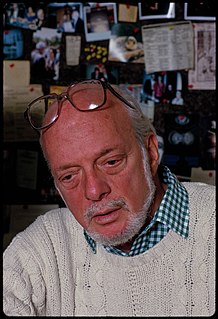Top 77 Quotes & Sayings by Harold Prince
Explore popular quotes and sayings by an American producer Harold Prince.
Last updated on April 14, 2025.
I'm just really trying to say what I really mean, which is: 'Your eye's on the prize, your eye's on the future. It's nice to know that a lot of wonderful things have happened to your life and that so much of it has been successful. That's great, but the work is really what makes it fun - and that has to be the future.'
Collaboration is just, really, a group of people getting in a room with their eye on a very similar prize and wanting to come out with the same show. The director, ultimately, is the guy in front of whom the buck stops. So, he has to have the courage to prevail. But, he has got to have a huge amount of respect for his collaborators.
When I started producing, it was George Abbott directing and he would let me do the scenery. He just wanted to know where the doors were - the entrances, the exits; the tables, the props - and then I would hire the designer. I took charge of the visuals - scenery and costumes and so on. And, the shows looked wonderful.
I suppose a certain degree of adulthood has entered my life. Aiming for Broadway, I can't think that way any more. Of course, Broadway will always be important. But it's not the focus of everything that you do. You know, I'm very happy I was born when I was, so I got there in time. When it was time to get there.




















